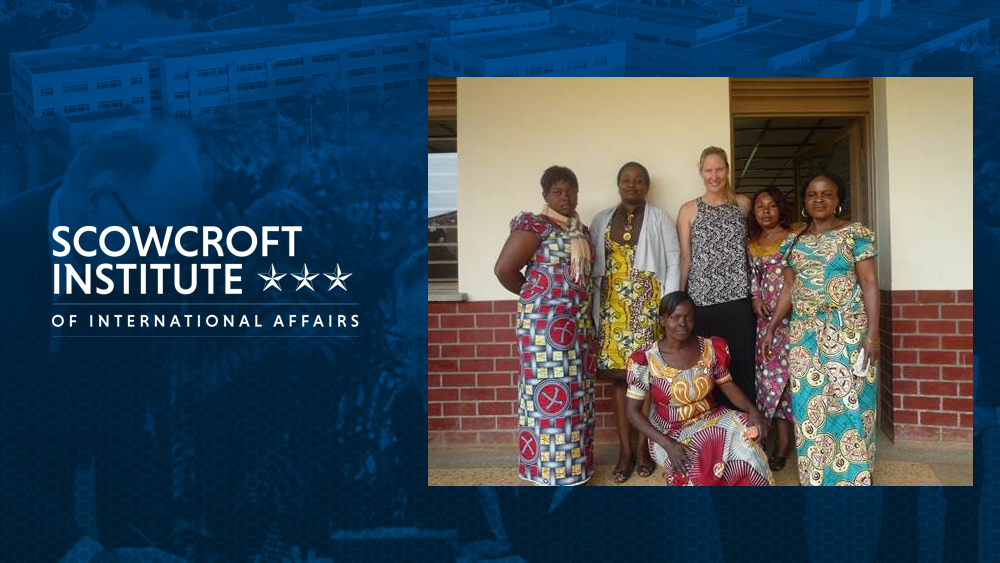
There are many challenges associated with beginning a business in a conflict region, and Dr. Leslie Ruyle is well aware of those challenges. People living in regions of conflict still need to make a living, and young people especially need to see opportunities for their future that don’t include fighting. Ruyle is interested in supporting communities in areas usually neglected for entrepreneurship, especially those in conflict regions with limited roads and electricity options next to areas of conservation concern through her work at Texas A&M University.
Recently, she talked about some of her past and ongoing projects, including her work this year with a capstone group comprised of second-year International Affairs graduate students at the Bush School of Government and Public Service at Texas A&M University.
“Entrepreneurship” is the latest buzzword across campus and across the United States, and Ruyle saw an opportunity to link the extensive expertise of Texas A&M’s students, faculty, and community members in College Station, Texas with a university and community she has worked with for over five years in the eastern Democratic Republic of the Congo (DRC). By working with departments across campus, the program is helping local entrepreneurs in the DRC develop resilient businesses and students a greater perspective on the challenges of business around the world.
This project began when Ruyle was researching the impact of a hydro-power dam in Virunga National Park. The funder’s idea was simple enough—the electricity generated by these dams would help spur economic development in the community. And because conflict can be as much poverty driven as ideological, inexpensive electricity could help support peace efforts in the region. Working with Virunga National Park, Ruyle set out to examine the effects of these dams on the locals potentially benefitting from them. She began talking to community members asking them what they would do with this electricity in an attempt to gauge its impact.
“When I asked this question they’d say ‘Well non-governmental organizations (NGOs) will come in, and they’ll give us jobs,’” she said. “If you’re in international development, you know that’s not the most sustainable option.”
Another common response was “factories will come in,” but the lack of paved roads in the region made this seem unlikely. Finally someone said “I want to start a cell-phone charging shop.” Ruyle knew this was an idea that with potential. Most people have cell phones, but they need to have a place where they can charge their phones.
“So how do we help these people who have these great ideas to start businesses and begin to see the emergence of a middle class?” Ruyle thought. The answer? Entrepreneurship.
Out of this came Wakisha, an entrepreneurship program based at the local university. Meaning “ignite” in Swahili, Wakisha is a fitting name for this program which is meant to provide seed funding, mentorship, training, and an office space for these business people. The collaborative working space provides electricity, internet and a common working space designed so that these creatives may interact with each other, generating new ideas and expanding on their original business plans. Over the summer, Ruyle hosted “Leopard’s Lair,” which was inspired by the hit U.S. show Shark Tank and the UK program Dragon’s Den. Entrepreneurs were invited to come present their ideas, and nine were selected and ultimately had their projects funded. In addition to financial support, there are local mentors as well as mentors from abroad who work with these entrepreneurs on the ground providing weekly training at the Wakisha hub.
Now, Ruyle is leading a capstone team who are supporting the program by further developing the model, building on the curriculum, and providing an evaluation framework to better understand the strengths and challenges of the endeavor. Her hope is to connect Bush School students to real world programs in international development where they can see the impact of their work on the lives of these entrepreneurs.

